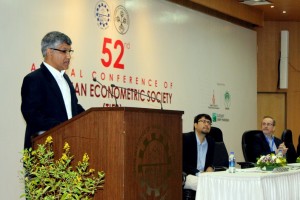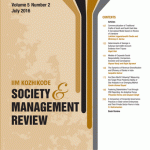CULTURAL DETERMINANTS OF CHINESE NEGOTIATIONS BEHAVIOR
There is a vast body of literature that deals with culture and its impact on international business negotiations and broadly speaking there are four approaches, namely, structural-processual approach, negotiators’ behavior approach, cognitive-strategic approach and the stages approach. The structural–processual approach talks about factors like context/situation, processual/behavioural aspects and other strategic goals/ outcomes.[1] The negotiators’ behavior studies impact of culture on negotiations and surveys are conducted to access, analyze and explain cultural impact on negotiations behaviour. The cognitive-strategic approach links behavior and actions of negotiating players to cognition and this approach describes negotiations from the perspective of influence cultural dispositions have on negotiations behavior of parties involved. The stages approach involves examination of cultural impact on negotiations behavior in terms of stages.
Speaking about studies on cultural determinants of Chinese negotiations behavior one can speak of number of studies. For instance, Frankenstein characterizes Chinese negotiations as a ‘spiral model’ where one witnesses the indirect and bureaucratic nature of Chinese negotiations practices. He emphasize on aspects like personal relations (guanxi), sincerity, mutual feelings, importance of being ‘old friend’ (lao pengyou), striving for consensus. Woo and Prudhomme in their study of Chinese negotiations have enumerated eight facets of Chinese negotiations behavior, namely, face, trust, friendship, guanxi, ambiguity, patience, and the lengthy and formal Chinese protocols. Graham and Law similarly speak about guanxi (relationships), role of intermediaries (zhongjian ren), relevance of social status (shehui dengji), interpersonal harmony (renjie hexie), holistic thinking (zhengti guannian), thrift, face (mian) and endurance (chiku nailao).
Herriot once quipped ‘culture is what remains when one has forgotten everything else’. Culture is a way of thinking and acting and in this sense people of different cultures think and act differently. The challenge is to have a healthy respect and mutually understand and appreciate how culture affects inter-cultural interactions when they come together to negotiate a deal. According to an ancient Chinese proverb ‘only devils move in straight lines’. Therefore, negotiations invariably involve mutual courtesy which is more often than not a patient and pain staking process. Familiarity with different cultures enables people to get familiar with other cultures and in the process become empathetic to the other sides’ concerns and feelings. This in turn enables them to equip themselves better while preparing for inter-cultural negotiations.
P.S. This post draws from my workingpaper which was presented in a recent CII event.
[1] Under this approach culture’s impact on negotiations is considered as part of context by some scholars while others study role of culture as part of context, process and strategy .
G. Venkat Raman is an Assistant Professor of Humanities & Liberal Arts in Management in IIM Kozhikode
















 Users Today : 477
Users Today : 477 Users Yesterday : 488
Users Yesterday : 488 This Month : 9441
This Month : 9441 This Year : 9441
This Year : 9441 Total Users : 567685
Total Users : 567685 Who's Online : 4
Who's Online : 4